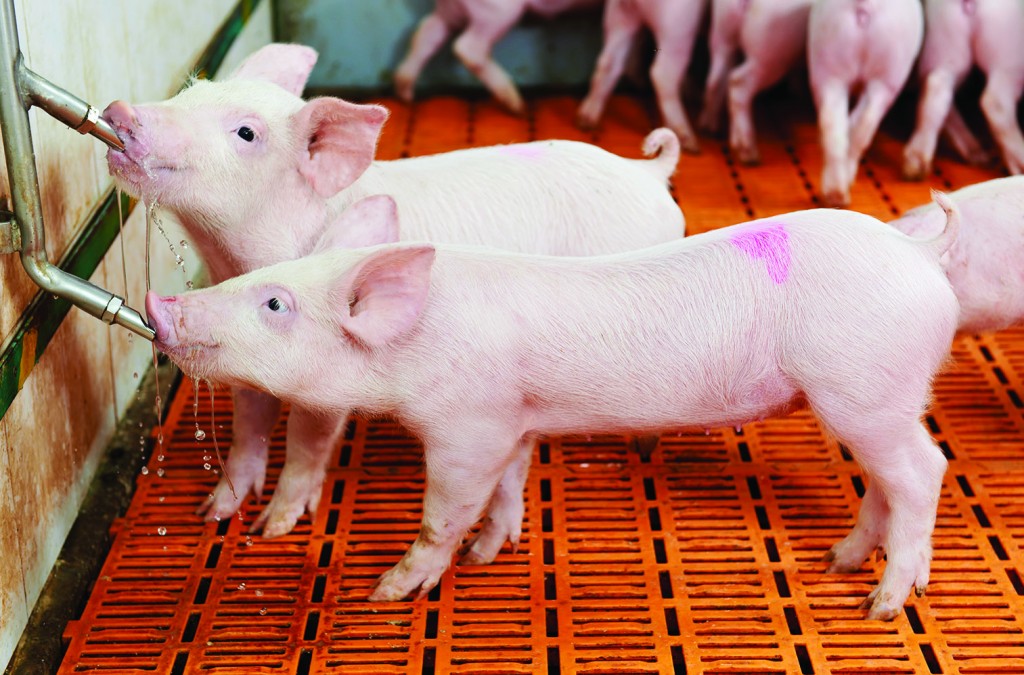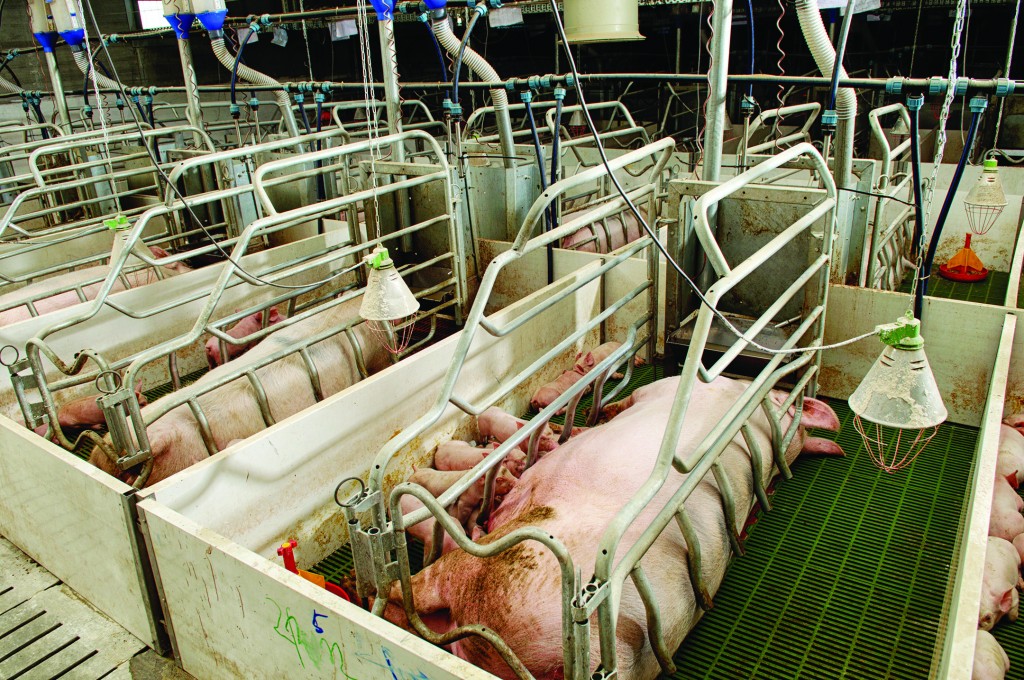On July 15, 2013, AgFeed Industries and its affiliate, AgFeed USA, filed for bankruptcy under Chapter 11 of the Bankruptcy Code in the U.S. Bankruptcy Court for the District of Delaware. Pre-petition, AgFeed Industries was a U.S.-domiciled holding company created in 2007 from a reverse merger and initial public offering (IPO) of a Chinese agricultural feed producer, eventually trading on the U.S. public market.
Aggressive Beginnings
After completion of an IPO, AgFeed Industries acquired numerous swine farms in China and commenced an aggressive strategy to build swine production farms in mainland China utilizing Western farming techniques. In 2009, AgFeed Industries entered into a joint venture with M2P2, a leading hog production company in the U.S. M2P2 contributed its expertise in building design, hog production and training, and AgFeed Industries contributed its understanding of the Chinese hog industry. In September 2010, AgFeed Industries acquired M2P2, renaming it AgFeed USA, with the objective to further leverage M2P2’s technical knowhow and continue the expansion of western style swine production in China.
From 2009 through 2011, AgFeed Industries focused on implementation of this strategy by building, stocking and commencing operation of two western style farms — one in Dahua, Guangxi and the other in Jinyu, Jiangxi. These two sow farms, each with 5,000 hogs in production, were two of the most efficient hog farms in China, producing sows in large production systems.
Thanks to the acquisitions, reported revenue for the consolidated operation grew from $101 million in 2009 to $357 million in 2011, and reported annual net losses became net income. Wall Street rewarded AgFeed Industries’ success with a stock price that increased more than 80% in two short years. AgFeed Industries appeared to be on a path to a successful implementation of the strategy laid out several years earlier. All it seemingly needed was additional capital to continue building western-style farms in China. However, what followed this stage quickly stalled all momentum.
Pervasive Fraud
In 2011, reports of pervasive fraud and accounting irregularities in the company’s China operations dating back as far as 2008 resulted in the delisting of the company’s stock, a SEC enforcement investigation, shareholder lawsuits and an inability to access additional capital to continue the build-out strategy. At the same time, AgFeed USA fought a legal battle with its exclusive U.S. packer, Hormel Foods (Hormel), leading to an $8 million arbitration award to Hormel, defaults under AgFeed USA’s credit facilities with Farm Credit Services America, the inability to attract capital and a liquidity crisis. Hormel and the AgFeed liquidating trustee remain at odds over the arbitration findings. Litigation is currently ongoing.
For strategic reasons in furtherance of a sale program, AgFeed Industries, AgFeed USA and various affiliates filed Chapter 11 petitions. Given the chance that the successful liquidation of AgFeed Industries and AgFeed USA could result in a distribution to the debtors’ former shareholders, an ad hoc committee of equity security holders was formed to represent the interests of all stakeholders. The committee retained Sugar Felsenthal Grais & Hammer (SFGH) and Elliott Greenleaf as co-counsel. By mid-August, the U.S. Trustee sought the appointment of an Official Committee of Equity Security Holders (the Equity Committee), which then retained SFGH and Elliott Greenleaf as its counsel. SFGH had recently achieved success in another large hog-producer Chapter 11 bankruptcy — Natural Pork Production II and affiliates — involving productive asset sales in the Southern District of Iowa.
By the time of SFGH and Elliott Greenleaf’s retention, the lower end of the range of values for the U.S. operations barely covered the amount of the secured debt, while a sale toward the higher end of the range would provide sufficient liquidity to pursue a sale of the Chinese operations. Without a successful sale of the Chinese operations, shareholders would likely receive little or no recovery.
Action Plan Development
Following their engagement, the professionals worked to develop cash projections and action plans and negotiated a complex 30-day forbearance agreement, and subsequent extensions, which allowed the companies to avoid a premature bankruptcy filing and preserved the opportunity to complete a sale of the U.S. assets and monetize the value of the Chinese operations. The professionals coordinated with the board, senior management, investment bankers and lenders on an agreed liquidation strategy for the U.S. and Chinese operations resulting in an asset purchase agreement with The Maschhoffs — the fourth largest U.S. pork producer — for the U.S. assets, and a bankruptcy filing to consummate the sales of the U.S. and Chinese assets.
With the stalking horse bid in hand for the U.S. assets, the professionals pursued a consortium bid from several pork producers individually interested in discrete assets. As an inducement, AgFeed USA would retain more than half of the existing hog inventory and liquidate that inventory after closing. The consortium’s involvement resulted in a 35-round auction with the consortium’s members as the winning purchasers. The successful U.S. sale afforded the time and liquidity to complete a robust marketing of the Chinese operations, with the involvement of Mandarin-fluent professionals who were familiar with Chinese legal and business practices.
The equity committee and its professionals played a key role in both sales. The equity committee’s constituents — AgFeed Industries’ shareholders — were the fulcrum security with the key stake in potential litigation claims arising from the fraud. SFGH and Elliott Greenleaf supported the debtors through the auction and sale process, which included negotiations of favorable document retention and access provisions critical to the pursuit of litigation claims. At the same time, SFGH and Elliott Greenleaf led the equity committee in a sustained opposition to the U.S. Trustee’s campaign to install an examiner and a Chapter 11 trustee, which put the successful closure of the asset sales at risk.
A Strategic Approach
In less than one year, through a very strategic approach, the transaction team successfully executed an orderly sale of all operations through two complicated section 363 sales transactions that will result in a 100% recovery to all creditors and a substantial recovery to equity constituencies.
In September 2013, the company completed the sale of its U.S. operations, comprised of its farrowing, feed and finishing operations and approximately 40% of its finishing inventory. AgFeed received cash consideration of $49.7 million, which was used to repay FCSA and related fees and expenses. The day after the closing of the U.S. sale, AgFeed entered into a stock purchase agreement (SPA) with Ningbo Tech-Bank, a publicly traded Chinese agribusiness, for it to acquire all outstanding shares of the British Virgin Islands holding company for the Chinese subsidiaries. The form of the transaction was a stock sale of the BVI holding company, which allowed the cash proceeds to be repatriated to the U.S. debtor without delay or risk of leakage from Chinese legal and regulatory authorities.
Despite having a signed SPA, the transaction was far from complete. No competitive bidders surfaced and the operations continued to deteriorate, aided in part by actions of the Chinese employees who were attempting to disrupt the sale. The SPA went through several revisions. Throughout the process, SFGH and Elliott Greenleaf effectively managed the expectations and communications of all parties in interest. As a result, the transaction was closed on December 6, 2013 with $46 million of net proceeds being received by the debtors. The transaction marked the first ever sale of the Chinese operations of a U.S. Chapter 11 debtor to a Chinese company.
Throughout the process, the transaction team coordinated and worked collaboratively, which resulted in a highly consensual Chapter 11 proceeding with relatively little friction or costly contested matters.
On September 24, 2014, for their ground breaking work as co-counsel to the equity committee, SFGH and Elliott Greenleaf received the Turnaround Management Association‘s prestigious Large Transaction of the Year award. The success and complexity of the international transaction of AgFeed Industries’ U.S. and Chinese operations earned the firms countless recognitions by leading legal media analysts and M&A organizations, including: the 6th Annual International M&A Advisor M&A Deal of the Year (over $50 million to $75 million), the 6th Annual International M&A Advisor Agricultural Deal of the Year, the M&A Advisor 8th Annual Advisor Turnaround Award for Sec. 363 Sale of the Year (over $50 million to $100 million) and the ACG and M&A Advisor Champions Award for Consumer Deal of the Year (Under $50 million).


